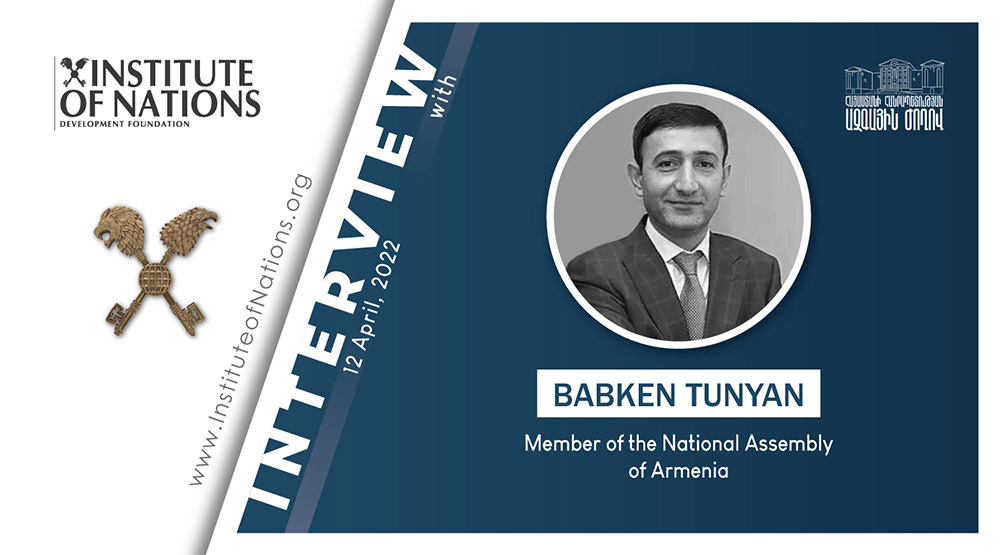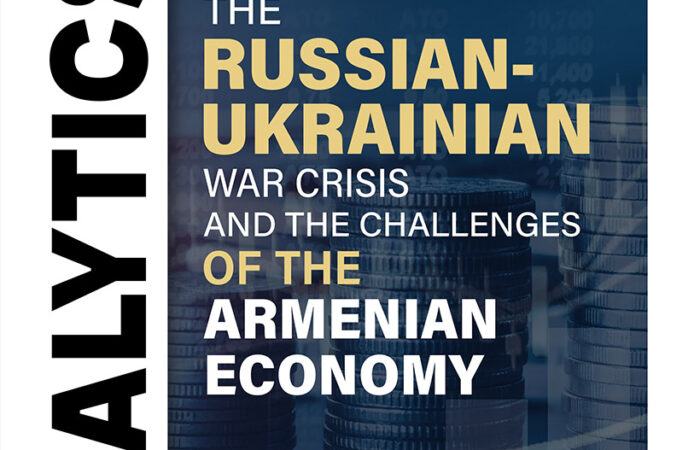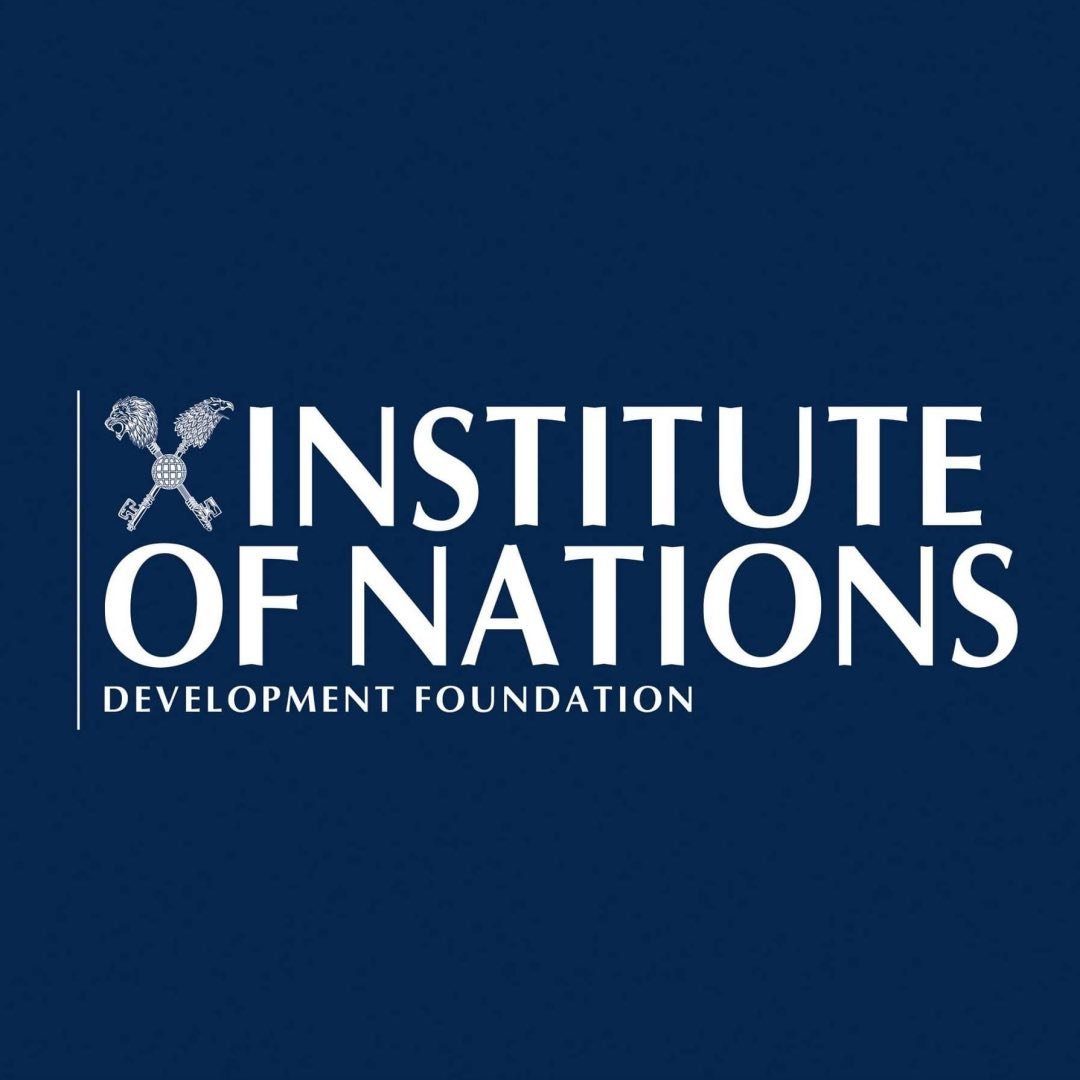Babken Tunyan, MP of NA Civil Contract fraction, was interviewed by Siranush Papyan
RA NATIONAL ASSEMBLY READY TO ASSIST IMPLEMENTATION OF ARMENIA’S EXPORT-ORIENTED POLICY
Mr. Tunyan, the government envisages increasing Armenia’s export volumes to 43-45% of GDP by 2023. How realistic are these anticipations given ongoing export issues conditioned by Russia-Ukraine war?
The government promised to increase GDP to 43-45% not for 2023, but 2026, i.e. this is a target planned for 2021-2026 Action Plan. Yes, there are certain difficulties now linked to export, including technical, transport, but I hope these difficulties will be interim and we’ll succeed to reach the target indices we’ve set. Particularly when it comes not only to goods, but services as well, and in terms of goods, the emphasis should be made on especially high-value, technologically more complex products, in case of which transport will not have such a big impact.
To what extent is Armenia taking steps to diversify its foreign trade today?
Export diversification isn’t something that can be diversified in a month or in a year. To that end, steps are required, which should bring their result after 1-2-3 or 5 years. As you know the government has introduced industry priority fields—high technology industry, jewelry, pharmaceuticals, so all these steps will lead us to export diversification. In other words, main directions of our export—mining, export of cigarettes, alcoholic beverages, they’ll maintain their status, but in parallel, other directions should be stressed as well, like export of high-value goods and services.
Has the NA to do anything in this respect or not? I mean to which extent is the NA Standing Committee on Economic Affairs able to use parliamentary diplomatic tubes with other countries?
The National Assembly, of course, has work to do not only in this direction, but generally in all directions. But the NA shouldn’t be observed as a separate circle and everything should be considered as a wing of the general ruling political team. Our steps are synchronized as we act within 2021-2026 Action Plan of the Armenian government. It is another matter that we invest the resources we have, albeit limited, but available to help solve those problems. I would not like to underestimate or overestimate the role of the National Assembly, as many functions, addressed to a more practical field, are in the domain of the government. RA NA, in its turn, may adopt, develop, agree, propose projects aimed at boosting export, which it’s engaged in.
Is there a need to improve legislation oriented to foreign trade or not?
There is constant need to improve legislation, as the world and economies change rapidly and countries are in competition. To be able to withstand contestation, one should constantly follow the developments in the world and take steps not to decrease attractiveness compared to the contestant states. To that end, constant work is underway. For instance, recent legislative change referred to exemption from customs duties from all exporters. That will allow small exporters to decrease their expenditures and become more competitive. From RA NA recent amendments I want to remind reduction of VAT refund periods during exports, which plays a serious role for exporting companies. There have always been similar steps and will be in future, too. That is, it’s an ongoing process.
What the Ministry of Economy has to do to that end?
The Ministry of Economy should be the very leader in all the directions you mentioned above, as it’s the body for developing economic policy. The Ministry of Economy itself should be the first to notice the problems, developments tendencies, need for correction and come up with proposals, proactive policy. In fact, most of business- and export-oriented proposals come from the Ministry of Economy. And no matter how productive it may be, I consider, I’m not the right person to give assessment. But the role of the Ministry of Economy, sense of its existence it the very question mentioned by you, i.e. in all these directions the biggest share of actions is that of the Ministry of Economy.
What does the National Assembly have to do in the field of economic diplomacy, what steps are being taken in connection with the economic advancement of our products in general?
Of course, the National Assembly has certain involvement in economic issues through parliamentary diplomacy, for instance, it is indirectly engaged in economic diplomacy. For instance, I myself am the head of RA NA delegation at the Organization of the Black Sea Economic Cooperation (PABSEC) and by logic, different regional economic projects, opportunities and potential of Armenia’s participation in them, as well as those of Armenia’s benefiting from various international mechanisms, should be discussed there. But, of course, unfortunately, I can’t say that organization at least serves that economic agenda by majority. Mostly political, geopolitical topics are covered there. Also, there are platforms, within international organizations or separate visits, or within friendship groups our MPs attempt to introduce Armenia’s economic agenda, priorities and opportunities. In other words, those platforms are used, but it should be stated that possibilities of MPs, awareness and powers in this respect are not so big.
Is there room for work in the legislative field in the sense that we would be able to create a body to regulate all that work, what are the gaps in this regard?
We do not have such a function, toolset and opportunities for promotion of specific products, that’s why there are different bodies per fields, and through organization of exhibitions or conferences, but as NA MPs we can’t do lobbying or promotion of Armenian products. It can also be perceived as an advertisement of separate products. In general, we can present the investment attractiveness of Armenia, the advantages of the Armenian field, the competitive environment. This is what needs to be done, there is no need for special legislation. We just need to work more closely with the NA-Ministry of Economy-MFA, so that our functions are synchronous and complementary.
Interview by Siranush Papyan





